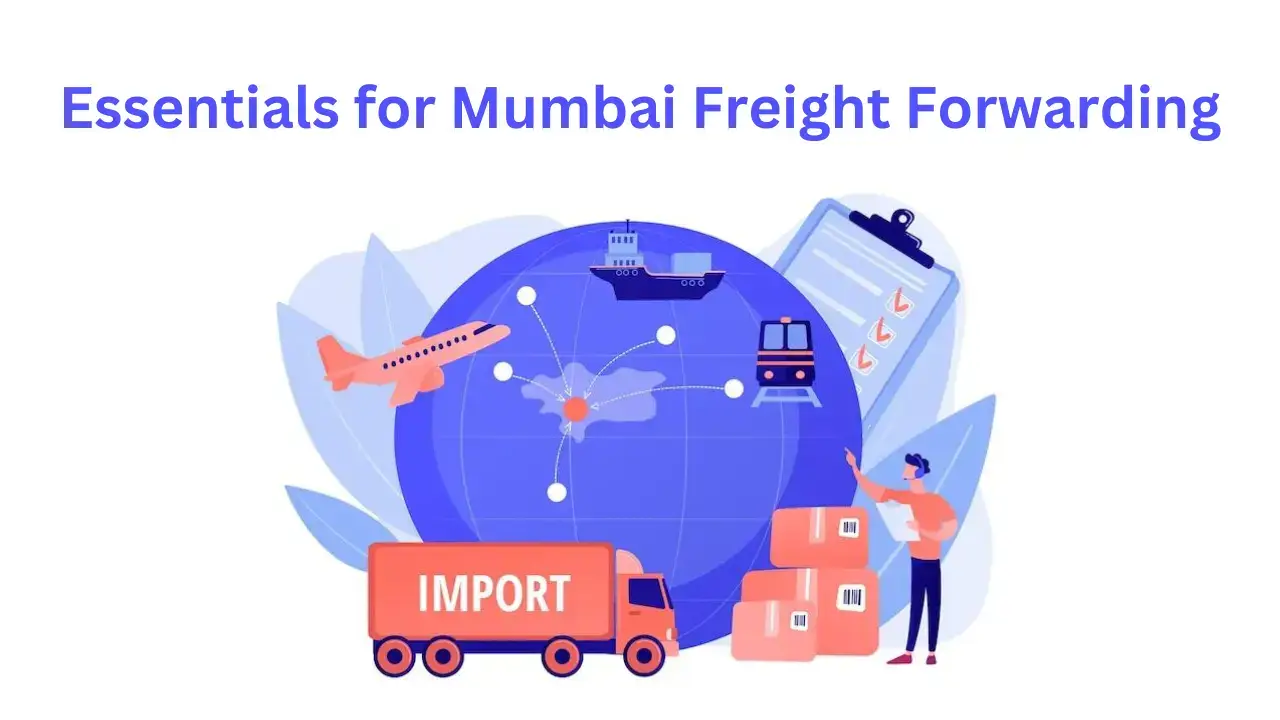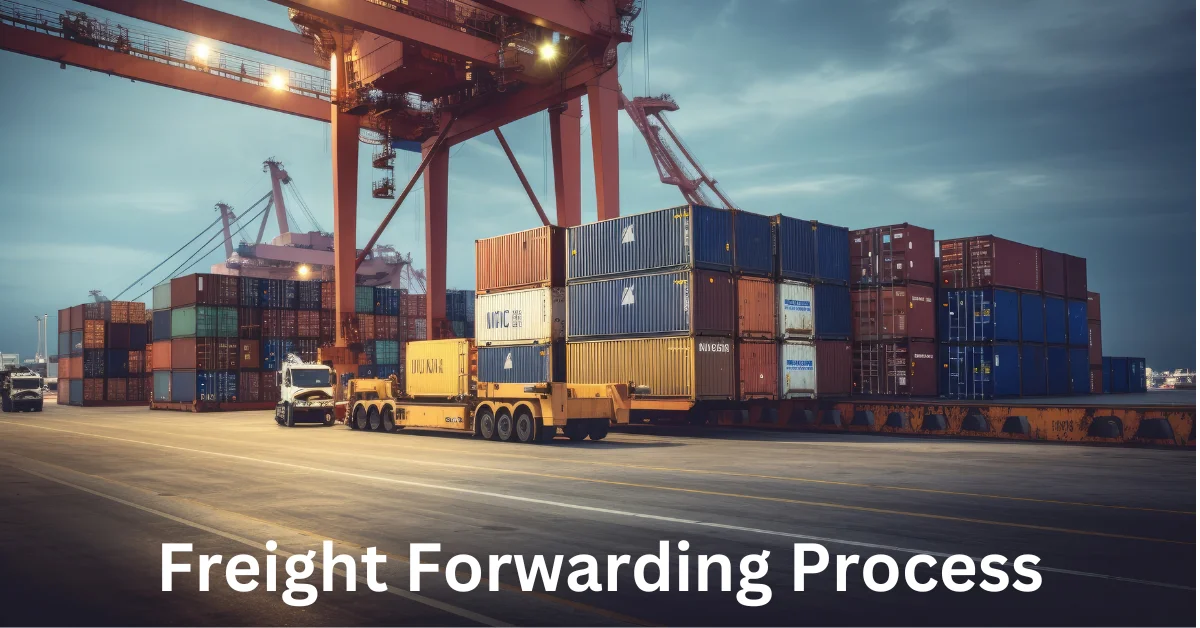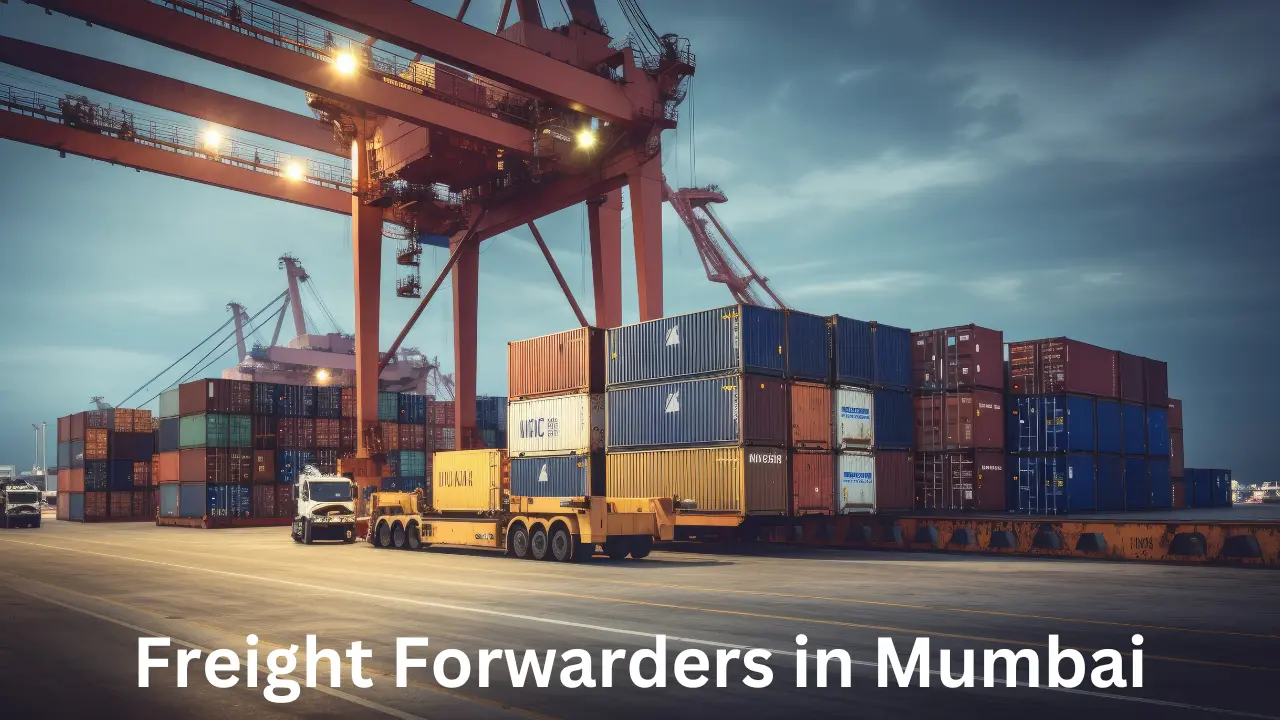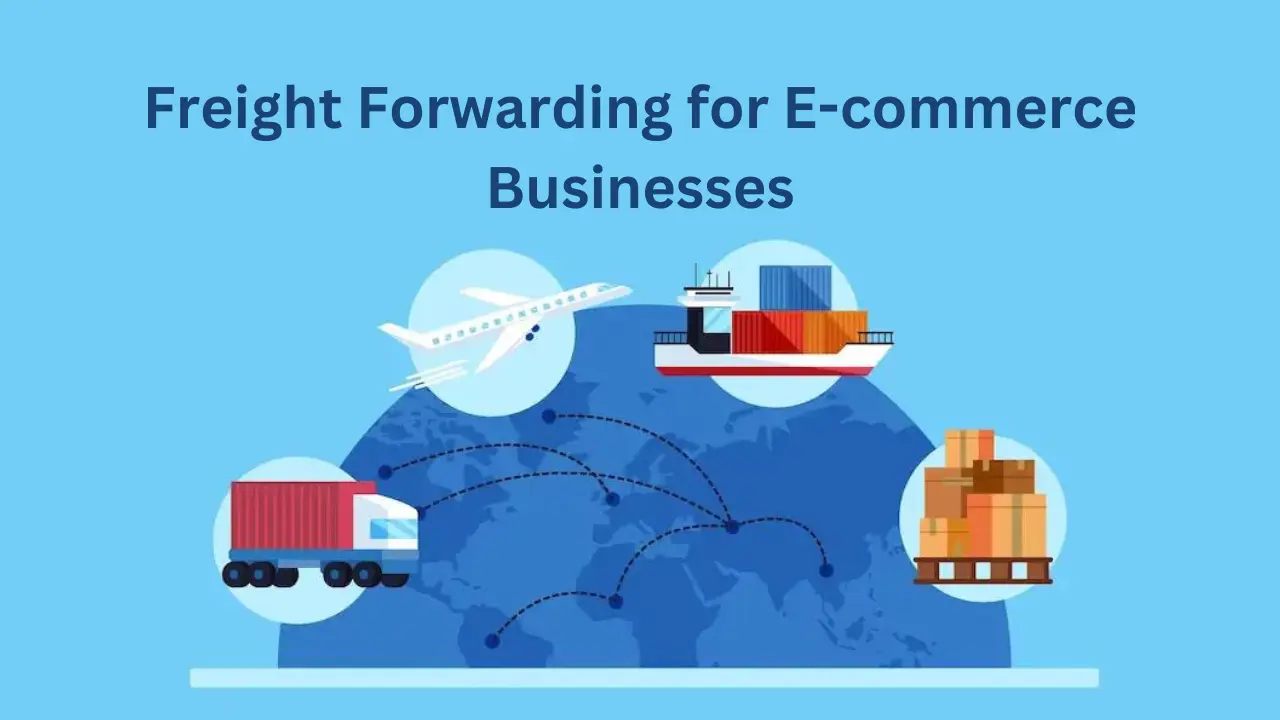
Customs Documentation and Compliance: Essentials for Mumbai Freight Forwarding
The world of international trade and logistics is a complex and multifaceted domain. Mumbai, the bustling metropolis on the western coast of India, serves as a critical player in the global logistics ecosystem. In this blog, we will delve into the intricacies of customs documentation and compliance, exploring why these aspects are essential for Mumbai’s thriving freight forwarding industry.
Introduction to Mumbai Freight Forwarding
A. Definition of Freight Forwarding
Before we dive into the specifics, let’s clarify what freight forwarding entails. Freight forwarding is the backbone of international trade. It refers to the coordination and management of the transportation of goods from one location to another, often across international borders. Freight forwarders are the professionals who navigate the labyrinth of regulations, carriers, customs procedures, and documentation, ensuring that goods reach their destination seamlessly.
B. Importance of Customs Documentation and Compliance in Mumbai
Mumbai, often referred to as the “Gateway of India,” is a crucial hub for both imports and exports. The city’s strategic location, well-connected ports, and thriving manufacturing and trading activities make it a focal point for international commerce. However, this prominence comes with a set of unique challenges and opportunities, particularly regarding customs documentation and compliance.
C. Purpose of the Blog
This blog aims to shed light on the indispensable role of customs documentation and compliance in Mumbai’s freight forwarding industry. We will explore the specific documents and compliance requirements that freight forwarders must navigate, the challenges they face, and the strategies they employ to ensure the smooth flow of goods through this vibrant hub of trade.
II. Understanding Mumbai as a Logistics Hub
A. Mumbai’s Role in International Trade
Mumbai has long been a center of commerce and trade, with a history dating back centuries. Today, it continues to play a pivotal role in the global supply chain. The city’s significance can be attributed to several key factors:
Port Facilities: Mumbai boasts two major ports, the Mumbai Port and the Jawaharlal Nehru Port (Nhava Sheva). These ports handle a substantial portion of India’s cargo, making them vital gateways for imports and exports.
Economic Activity: Mumbai is home to numerous industries, including manufacturing, finance, and information technology. These industries drive substantial imports of raw materials and exports of finished goods.
Transportation Infrastructure: The city has a well-developed transportation network, including road, rail, and air connectivity, which facilitates the movement of goods.
Proximity to Major Markets: Mumbai’s strategic location allows businesses to efficiently access both domestic and international markets.
B. Challenges Faced by Freight Forwarders in Mumbai
While Mumbai’s role in international trade is undeniably significant, it comes with its share of challenges for freight forwarders and logistics professionals. These challenges include:
Regulatory Complexity: India’s customs and trade regulations can be intricate, and staying compliant requires a deep understanding of the law and its constant changes.
Customs Delays: Customs clearance processes can sometimes be time-consuming, leading to delays in the movement of goods.
Infrastructure Congestion: Mumbai’s ports and roads can get congested, which affects the efficient flow of cargo.
Competition: The competitive nature of the logistics industry in Mumbai means that forwarders must continually strive to offer efficient and cost-effective services.
III. Key Customs Documentation and Compliance Requirements
In the realm of international trade and logistics, customs documentation and compliance are the linchpins holding everything together. Mumbai, as a bustling hub for global trade, places a premium on adhering to these requirements to ensure the smooth flow of goods. Here, we’ll explore the key customs documentation and compliance prerequisites that are essential for freight forwarders operating in this dynamic environment.
A. Bill of Lading
The Bill of Lading (BoL) is arguably the most crucial document in international shipping. It serves as a receipt, a contract, and a document of title for the goods being shipped. For Mumbai’s freight forwarders, this document is the foundation upon which customs clearance and cargo release are built. It includes essential information such as the details of the consignee, description of the goods, and the terms of shipment.
B. Commercial Invoice
The commercial invoice is the financial document that details the transaction between the buyer and seller. It provides a comprehensive breakdown of the goods, their value, and the terms of sale. This document is instrumental in determining the customs value of the goods, which, in turn, affects customs duties and taxes.
C. Packing List
The packing list complements the commercial invoice by providing a detailed list of the contents of each package or container. It includes information like the number of units, dimensions, weight, and a description of the goods. Accurate packing lists help customs officials verify the contents of the shipment and ensure compliance.
D. Certificate of Origin
Mumbai’s freight forwarders must also contend with the Certificate of Origin, a document that specifies the origin of the goods being shipped. It’s critical for determining eligibility for preferential trade agreements and tariff concessions. Ensuring the authenticity and accuracy of this document is crucial for customs compliance.
E. Importer Exporter Code (IEC)
The Importer Exporter Code (IEC) is a unique 10-digit number issued by the Directorate General of Foreign Trade (DGFT) in India. Freight forwarders must possess this code to engage in import or export activities. It’s a mandatory requirement, and ensuring its validity is fundamental for smooth operations.
F. Other Relevant Documents
Apart from these key documents, freight forwarders in Mumbai must also be aware of and manage various other documents such as:
Customs Declaration: A detailed statement that provides customs authorities with critical information about the goods, their value, and the applicable duties and taxes.
License and Permits: Depending on the nature of the goods being imported or exported, specific licenses and permits may be required.
Insurance Documents: Proof of insurance coverage for the goods being transported is crucial to safeguard against potential losses.
Specialized Documentation: Certain industries may require unique documentation, such as phytosanitary certificates for agricultural products or certificates of conformity for specific goods.
IV. Compliance Requirements
Navigating the intricate web of customs documentation is only part of the challenge. Freight forwarders in Mumbai must also meet a range of compliance requirements to ensure they adhere to India’s import and export regulations:
A. Import Regulations in India
India has a diverse set of import regulations, including prohibitions, restrictions, and licensing requirements for various products. Mumbai-based forwarders must stay abreast of these rules to ensure that imported goods comply with all relevant standards.
B. Export Regulations in India
Similarly, export regulations govern the outbound flow of goods. Compliance involves understanding export restrictions, licensing requirements, and any international sanctions or embargoes that may apply to certain destinations.
C. Customs Tariffs and Duties
Customs duties and tariffs play a significant role in trade. Mumbai freight forwarders must accurately assess these fees, as incorrect calculations can lead to financial penalties and delays in customs clearance.
D. Special Economic Zones (SEZs) and Export Processing Zones (EPZs)
Mumbai is home to several Special Economic Zones and Export Processing Zones, each with its set of regulations. Freight forwarders need to understand these zones and the benefits they offer, such as duty exemptions and streamlined customs procedures.
E. Trade Agreements and Preferences
India has entered into numerous trade agreements with different countries and regions. These agreements can impact customs duties and requirements. Knowledge of the specific agreements in effect is crucial for reducing costs and ensuring compliance.
F. Compliance Challenges and Penalties
Freight forwarders must be vigilant to avoid non-compliance, as it can lead to penalties, fines, and disruptions in their supply chains. Challenges may arise from changing regulations, discrepancies in documentation, or issues with classification and valuation of goods.
Best Practices for Mumbai Freight Forwarders
In the dynamic and demanding realm of Mumbai’s freight forwarding industry, adhering to best practices is crucial for success. As freight forwarders aim to optimize operations, maintain compliance, and exceed client expectations, the following best practices serve as a guiding light:
A. Efficient Documentation Management
Digitization: Embrace technology to digitize and streamline the management of documents. Digital records are easier to access, share, and archive, reducing the risk of data loss and human errors.
Data Accuracy: Ensure the accuracy and completeness of all documentation. Inaccurate or incomplete records can lead to customs delays, fines, and disruptions in supply chains.
Document Retention: Implement a robust document retention and archiving system to maintain records for the required regulatory period. Having easy access to historical data can be invaluable during audits and investigations.
B. Stay Updated with Regulatory Changes
Regular Training: Invest in ongoing training and education for your team to keep them updated on the latest changes in customs regulations, trade policies, and technology advancements.
Collaboration: Establish close ties with customs authorities and industry associations to gain insights into upcoming regulatory changes and participate in discussions that influence trade policy.
C. Risk Mitigation Strategies
Customs Consulting: Consider employing customs consultants or specialists who can provide expert guidance on compliance and risk management.
Insurance Coverage: Ensure comprehensive insurance coverage to protect against unforeseen events that could disrupt the supply chain.
D. Building Relationships with Customs Authorities
Open Communication: Foster open and transparent communication with customs officials. Building a positive relationship can expedite customs clearance and resolve issues more smoothly.
Pre-clearance Programs: Explore opportunities to participate in pre-clearance programs or expedited customs procedures, which can reduce delays and costs.
Conclusion
In the bustling heart of Mumbai’s logistics landscape, the freight forwarding industry plays a pivotal role in ensuring the efficient flow of goods to and from this vibrant city. Customs documentation and compliance are the cornerstones upon which this industry rests. By mastering the art of handling essential documents and adhering to compliance requirements, Mumbai’s freight forwarders can achieve success in this challenging and rewarding sector.
However, success in this domain is not merely about fulfilling regulatory obligations; it’s also about embracing best practices that optimize operations, reduce risks, and enhance client satisfaction. From efficient documentation management and staying abreast of regulatory changes to mitigating risks and building positive relationships with customs authorities, the best practices outlined in this blog are the keys to navigating the complexities of Mumbai’s logistics landscape.
As Mumbai continues to thrive as a hub of global trade, the freight forwarding industry’s role becomes even more critical. By embracing the essentials of customs documentation, compliance, and best practices, Mumbai’s freight forwarders are well-positioned to not only meet the demands of international trade but also to lead the way in shaping the future of logistics in this bustling metropolis. Through these endeavors, they not only contribute to their own success but also to the growth and prosperity of Mumbai as a beacon of global commerce.
In conclusion, at Shin Logistics, we understand the complexities and challenges that come with the world of international trade and logistics, especially in a vibrant hub like Mumbai. We pride ourselves on being your trusted partner in navigating these intricacies. From meticulous handling of customs documentation to ensuring full compliance with regulatory requirements, our dedicated team of experts is committed to delivering excellence in every aspect of freight forwarding.
By adhering to best practices, staying updated with ever-evolving regulations, and building strong relationships with customs authorities, we not only streamline your supply chain but also provide you with peace of mind. With Shin Logistics, you’re not just receiving freight forwarding services; you’re accessing a world of opportunities and possibilities. Let us be the bridge that connects your business to the global marketplace, ensuring your cargo reaches its destination seamlessly, efficiently, and cost-effectively. Your success is our success, and we look forward to continuing our journey together in the dynamic world of logistics.




